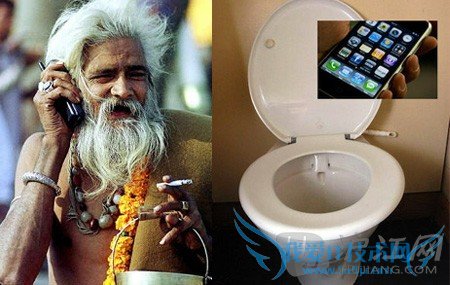��ӭ������52ijӢ��������������С��Ϊ�������Ӣ��֪ʶ�ǣ������Ϲ����鱨�棺ȫ���ֻ��û�����������û�����������������ϸ�ķ�����
���Ϲ����鱨�棺ȫ���ֻ��û�����������û�����

A new United Nations study has found that more people around the world have access to a cellphone than to a working toilet.���Ϲ����µ�һ������о���ʾ��ȫ��Χ��ӵ���ֻ�����Ҫ�ȡ�ӵ�в��������˶ࡣ
The study��s numbers claim that of the world��s estimated 7 billion people, 6 billion have access to mobile phones. However, only 4.5 billion have access to a toilet.���ݸ��о���������ʾ��Ŀǰ��ȫ��Լ70�����У���60���˿���ʹ���ֻ�����ֻ�д�Լ45�ڵ���������ʹ�ò�����
At a press conference announcing the report, U.N. Deputy Secretary-General Jan Eliasson announced the organization is launching an effort to halve the number of those without access by the end of 2015.���Ϲ������鳤�����������һ�����ŷ�����������������棬����ʾ���Ϲ����ڷ���һ�����ƻ���2015����ף���û������ʹ�ò�������������һ�롣
��Let��s face it��this is a problem that people do not like to talk about. But it goes to the heart of ensuring good health, a clean environment and fundamental human dignity for billions of people,�� Eliasson said at the press conference.���������ڷ������ϱ�ʾ����������Ҫ��������ʵ�����������������Dz�̫Ը��̸�۵����⣬����ȴ�DZ�֤�������彡��������������ʮ�����˵Ļ����������ϵĺ������⡣��
In August 2012, the Bill Gates Foundation began its own effort to ��reinvent the toilet�� as a way to help curb the number of people around the world without access to sanitary waste disposal.2012��8�£��ȶ��ǴĻ���Ὺʼ���С���������ƻ������ϣ�����Խ�����ȫ��Χ��������������������������������

Interestingly, the report states that India alone is responsible for 60 percent of the world��s population that does not use a toilet, an estimated 626 million individuals. Yet, at the same time, there are an estimated 1 billion cellphones in India.������Ȥ���ǣ��ð�����ʾ��ӡ��ռ����ȫ����ʹ�ò���������60%������Լ��6.26���ˣ������ͬʱ��ӡ�ȹ���ʹ�õ��ֻ��������ƴ�10�ڲ���
Conversely, in the world��s most highly populated country, China, only 14 million people do not have access to a toilet. However, there are also fewer cellphones in China, 986 million, according to the Daily Mail.�й��������֮�෴����Ȼ�й����������˿����ܼ��Ĺ��ң�������Ӣ����ÿ���ʱ��������ݣ����й�ֻ��1400����û����ʹ�ò������й�ӵ�е��ֻ�����ԼΪ9.86�ڲ�������ӡ�ȵ�������
Driving the point home, more than 750,000 people die each year from diarrhea and one of its primary causes is from unsanitary conditions created in communities without access to toilets.���и��������˵��������⡣ȫ��ÿ���г���75������������������д������Ϊû������ʹ�ò�����������������֤��
And there are other benefits of installing more modern sanitation options that don��t immediately come to mind.��װ�ִ����������豸���б�ĺô�����������һʱ���벻�����洦��
��This can also improve the safety of women and girls, who are often targeted when they are alone outdoors,�� said Martin Mogwanja, deputy executive director of the U.N. Children��s Fund. ��And providing safe and private toilets may also help girls to stay in school, which we know can increase their future earnings and help break the cycle of poverty.�����Ϲ���ͯ�����ĸ��ܸ�������-Ī����ӱ�ʾ��������������ǿ��Ů��ͯ�İ�ȫ�������ڻ����ĸ�Ů��ͯͨ����������Ϯ���Ķ����ṩ��ȫ˽�˵IJ���Ҳ������Ů�����Ǵ���ѧУ���ܸ��õĽ����������ܹ���������δ�������룬��������ƶ��Ķ���ѭ������
- �����б����������۽������ѱ�����˿���������������վͬ����۵��֤ʵ��������
-
